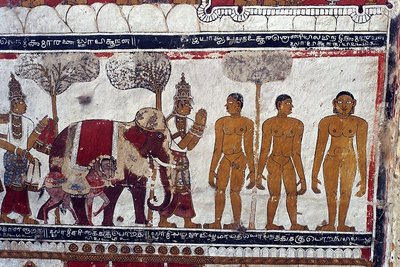
THE Taliban are back.
The resurgence of Taliban attacks in the Pashto-speaking provinces of southern and eastern Afghanistan means that US and other foreign troops in Afghanistan are now taking casualties at the same rate as American troops in Iraq (although the actual numbers are much lower).
This was entirely predictable, but almost impossible to prevent given the strategy that the United States has pursued since overthrowing the Taliban regime in late 2001.
On the other hand, no alternative strategy would have offered a guarantee of success in Afghanistan either.
Afghanistan was always the problem from hell for Western strategists, as it was in earlier times for British and Russian strategists.
It's an easy country to invade, but an almost impossible country to occupy long-term because of the rugged terrain, the deep ethnic divisions (if you make some ethnic groups your allies, you automatically make others your enemies), and the profound xenophobia that so many foreign invasions has fostered in Afghan culture.
That's why Osama bin Laden wanted the United States to invade Afghanistan in the first place.
The 9/11 terrorist attacks on New York and Washington were all about luring Washington into invading Afghanistan, in order to draw American troops into the quagmire of a long and ugly guerrilla war and turn Muslims everywhere against the United States and their own pro-Western governments.
It was an obvious strategy for al-Qaeda to choose, since bin Laden had been a first-hand witness to the long ordeal that the US inflicted on the Soviet Union after it suckered Moscow into occupying Afghanistan in 1979.
Zbigniew Brzezinski, President Jimmy Carter's national security adviser, wanted to create 'Russia's Vietnam' in Afghanistan, so he sent arms and money to fuel a revolt by the deeply conservative hill tribes against the Communist regime that had seized power in Kabul in 1978.
By late 1979 the Communist regime in Kabul was tottering, and Moscow sent in troops to save it.
Gotcha!
The US then gave the local rebels even more arms and money, and encouraged Muslim volunteers from other countries (mainly Arabs and Pakistanis) to join the war against the Russians.
After ten years and over fifteen thousand dead, the Soviet Union pulled out of the endless, unwinnable struggle in 1989.
However, most of the foreign volunteers were fought in Afghanistan were Islamist extremists, and some of them realised that what the United States had done to the Russians, they might now do to the Americans themselves.
Once a friendly Islamist regime, the Taliban, took power in Afghanistan in 1996, al-Qaeda moved its bases there and began planning the attacks that would trick the United States into invading the country.
The strategy worked.
After 9/11, President Bush HAD to invade Afghanistan; American public opinion would have accepted nothing less.
But Defence Secretary Donald Rumsfeld must have seen through bin Laden's strategy, for he chose not to roll into Afghanistan with several hundred thousand troops in the traditional American military style.
Given Afghanistan's history and the profound cultural differences between Americans and Afghans, the mere presence of such a large force would alienate the local population and call a resistance movement into existence.
Instead, Rumsfeld sent in only about five hundred CIA agents and special forces troops carrying suitcases stuffed with cash to buy alliances with Afghanistan's numerous ethnic minority groups, and laser target designators to call in US air strikes on Taliban forces.
Then he let the various ethnic militias do the actual fighting on the ground, and in ten weeks he brought down the Taliban regime without any large-scale commitment of American troops.
He successfully evaded the trap that bin Laden had laid - but his strategy implied that the US would have very little influence over the political shape of post-Taliban Afghanistan.
It had put the warlords in power.
They are still in power today, despite the facade of Hamid Karzai's democratically elected government in Kabul.
Opium production, almost eliminated under Taliban rule, is back bigger than ever, because the warlords need the income.
Even the Taliban (who no longer have any conventional tax revenues) are now taxing opium rather than eradicating it in the areas they control.
And they will continue to have support in those Pashto-speaking areas because the Pashtuns, some 40 per cent of the population, see the Taliban as their best chance of recovering their traditional dominant role in running Afghanistan.
So there will be a guerrilla war in Afghanistan for the indefinite future, but what was the alternative? Sending in a large American army to control and transform the country would have fallen into al-Qaeda's trap and created a much bigger guerrilla war of resistance - and besides, Rumsfeld was reluctant to commit many troops to Afghanistan because he was saving them for the invasion he really wanted to do in Iraq.
There have never been more than 27 000 American troops in Afghanistan, and now they are down to 19 000 (though the gap has been partly filled by 16 000 United Nations troops, mainly from Europe and Canada).
Would the situation improve if they all went home? No; the Taliban would probably win again, after a while, because they are more motivated and disciplined than the warlords.
Will it get better if they stay? No; it will probably just jog along as a low-level guerrilla war, with occasional peaks of violence like the present and no end in sight.
Damned if you do, and damned if you don't.
GWYNNE DYER
* Gwynne Dyer is a London-based independent journalist whose articles are published in 45 countries.

